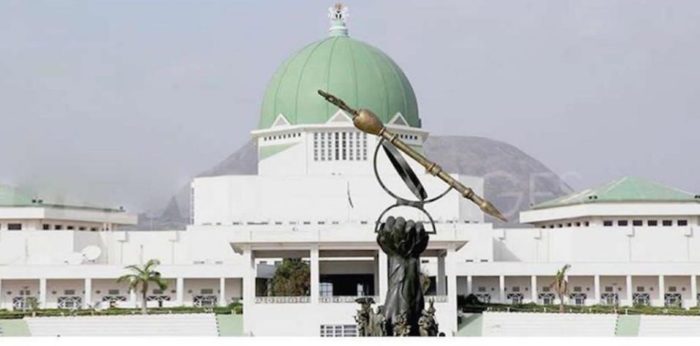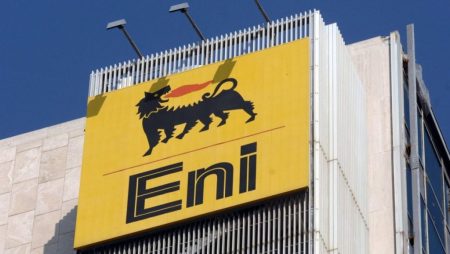
*Stakeholders flay 3% for host communities
Mkpoikana Udoma
Port Harcourt — Reactions have begun to trail the passage of the Petroleum Industry Bill, PIB, more than 13years after it was introduced to the National Assembly.
This is at the House of Representatives and the Senate, concurrently passed the PIB on Thursday, allocating 3percent of profits from operators to fund oil and gas host communities.
According to the PIB, 30 percent of profit on oil will be used for frontier explorations, while the money will be in an escrow account and if not used would be returned to the treasury.
Reacting to the passage of the PIB, stakeholders and industry experts have frowned at the reduction of host community funds from 10percent to 3percent, describing it as paltry and insignificant.
Stakeholders also explained that the Bill, though not a perfect document, was better late than never.
Executive Director of Health of Mother Earth Foundation, Dr. Nnimmo Bassey, 3percent to host communities was not commensurate with the environmental and health challenges caused by oil and gas exploration and exploitation.
Bassey also accused oil multinationals of fueling the delayed passage of the Bill, over their own business interests.
“Finally we have the PIB after such a long dragging of feet. We recognize that one of the factors to made the movement to this passage so sluggish is the fact that IOCs wished to ensure that their own interest is paramount in any legal architecture for the sector. That is the sad reality.
3% of profits going to Host Communities is a crumb considering how much sacrifice communities have made over the years — including the deaths, the health issues and the monstrous ecological devastation.
In the draft, IOCs had the prerogative of defining who a Host Community is. If oil companies decide who is a host community and who sits on the board that decides how the funds are to be used, then we can expect more divisions and instability in the region. Such an arrangement is unacceptable, is colonial and unhelpful.”
For a business and financial analyst, Mr. Ignatius Chukwu, Nigeria should run with the current PIB as passed by the National Assembly, before oil become less relevant, since the PIB remains the only way to allow more investments in the sector.
Chukwu who also frowned at the insignigicant 3percent earmarked in the Bill for host communities, however, explained that it was better than nothing.
“The consensus in the industry is that we have no choice, no luxury of time not to accept this. Crude is almost gone, oil companies at global level are transforming to energy companies, fossil oil is gone, gas has about a decade to flourish. So, no time for good or bad PIB.
“Host community aspect is the most sensitive but 3% from every oil company’s capital budget is better than nothing.
“Remember 1% on same capex already goes to the NDDC, 1% of contracts goes to Nigerian Content Board, FG remits to NDDC, 13% over all revenue goes to states, all GMOUs remittances go to Cluster Boards, etc. We can manage with these for now, if local accountability is there.
“The real gain is in freeing the NNPC to be a regulator while another national oil company will be an investor or operator. Minister to have less power. We can always amend it along the journey, but it’s good to start, after 21 years.”
Similarly, the Petroleum and Natural Gas Senior Staff Association of Nigeria, has also commended the passage of the Bill, while rwgreetes that the issue of host communities was politicised.
PENGASSAN Chairman, Port Harcourt Zone, Azubuike Azubuike, also explained that investments in the petroleum sector would not be as massive aa envisaged many years ago due to alternative energy sources.
“It’s a welcome development after over 20years of lying in the National Assembly. There will always be a room for amendment.
“One of the essence is to make our national oil company to run like a commercial venture and it will also help to expand frontier explorations.
“The issue of host communities was politicised. Host communities demanded for 10percent. One of the things that stalled the passage of the PIB all these years has been the issue and definition of host communities.
“Despite the attractive fiscal policy, investments may not be as massive as we had envisaged many years ago due to alternative sources of energy.
“However, it is better late than never anf there will be room for improvement on the laws.”
For an environmental justice campaigner, Fyneface Dumnamene Fyneface, passage of the PIB is a welcome development, as it remains a good start for the petroleum industry in Nigeria.
Fyneface who is also the executive director of Youths and Environmental Advocacy Centre, called on President Muhammadu Buhari to give assent to the Bill without furtherdelay.
“The passage of the PIB by the National Assembly after donkey years of its abandonment is a welcome development and a success of advocacies of civil society organizations, communities and other stakeholders in the country.
“Although the 10% demanded by the host and oil bearing communities in the Niger Delta was not approved but a paltry 3%, it is better than none and I am optimistic that it would improve in the future and a better starting point.
“The PIB as so passed may not be a perfect regulation as hoped but it remains a good start for the petroleum industry in Nigeria.
“So, while I congratulate all the stakeholders including the 9th National Assembly for this bold step of passing the PIB that has been in the National Assembly since 2008, I called on President Muhammadu Buhari, to sign the Bill into Law without delay.”
The PIB was first introduced into the National Assembly in 2008 as an executive bill by then president, Umaru Musa Yar’Adua.



